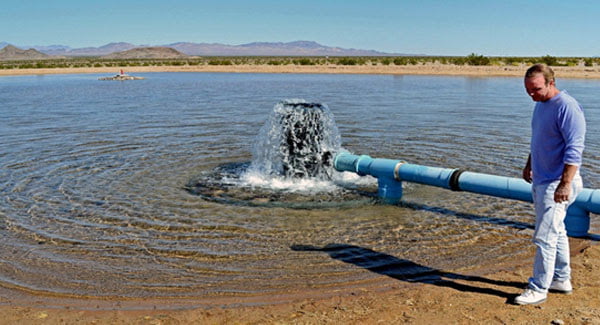Climate change has hastened the clock of an underground time bomb ticking away in the form of rapidly depleting groundwater reserves, says the latest study published in Nature Climate Change. Extreme weather events such as drought and record rainfall, worsened by global warming, could exhaust groundwater reserves (already depleting with the increase in world population and crop production) much faster than they replenish naturally, the study says. "Groundwater is out of sight and out of mind. This massive hidden resource that people don’t think about much yet underpins global food production," said Mark Cuthbert, from Cardiff University’s School of Earth and Ocean Sciences.
Cuthbert and his team found that only half of all groundwater supplies are likely to fully replenish or re-balance within the next 100 years, resulting in a shortage in drier areas.
Natural disasters caused loss of $653 billion in past 2 years: Study
The latest study by UK-based insurer Aon says that consecutive natural disasters in 2017 and 2018 caused economic loss to the tune of $653 billion. The costliest insurance loss in 2018 was the Camp Fire in California at $12billion. The forest fire, California’s deadliest, destroyed 18,804 structures, mostly in the city of Paradise, while Japan and Kerala were hit by “multi-billion dollar floods”, the study says. Steve Bowen, of Aon’s impact forecasting team, said, “…volatile weather patterns are forcing new conversations to sufficiently handle the need for mitigation and resilience measures. Natural disasters are always going to occur. How well we prepare can and will play a key role in future event losses.”
Study: WHO prediction of 250,000 deaths a year due to climate change was conservative estimate
New research published in the New England Journal of Medicine says rising global temperatures could result in many more deaths than the 250,000 a year the World Health Organization (WHO) predicted just five years ago. The WHO, in its 2014 report, had said that climate change will bring with it malaria, diarrhoea , heat stress and malnutrition, killing that many more people annually around the world from 2030 to 2050.
Scientists reviewed the WHO study to establish that “250,000 deaths is a "conservative estimate."
EAT-Lancet: Healthier diet, sustainable farming needed to save planet
New research takes the adage ‘you are what you eat’ to the next level. According to a study by the EAT-Lancet Commission on Food, Planet and Health, one way this planet can be saved is if its inhabitants make the switch to a healthier diet and sustainable farming. The study says that people living in both developed and developing worlds are undernourished because their diet lacks essential nutrients, which, it says, can lead to more death and disease compared to unsafe sex, alcohol, drug and tobacco use combined.
The study also terms the world’s food system ‘unsustainable’. It identifies food production as one of the major causes for environmental damage, biodiversity loss and climate change. The report sets out for the first time a “safe operating space” within which future food systems must function to be sustainable. This includes exact figures on how much food production can lead to greenhouse gas emissions, biodiversity loss and air pollution.
If these aims are met by 2050, the report says it will be a global “win-win”, even as the world population increases.
Report: World to miss ‘best chance’ to fight climate change
A study by World Resource Institute says the world will fail to ensure that emissions peak by 2020 and it will miss the “best chance” of preventing runway climate change. The report says the world will not be able to meet the six milestones experts identified in 2017, including quitting coal power plants, and phasing out fossil fuels by 2020.
About The Author
You may also like
Cyclone Michuang triggers flash flooding along India’s southern coast; 5 lives lost so far
Swinging in the rain: India needs to redefine what a “normal” monsoon looks like
Global ocean warming and rising, growing more acidic: Report
Billions at risk of heat and humidity exposure beyond human levels: Report
Climate change threatening almost all SDGs, only 15% on track: UN Report


